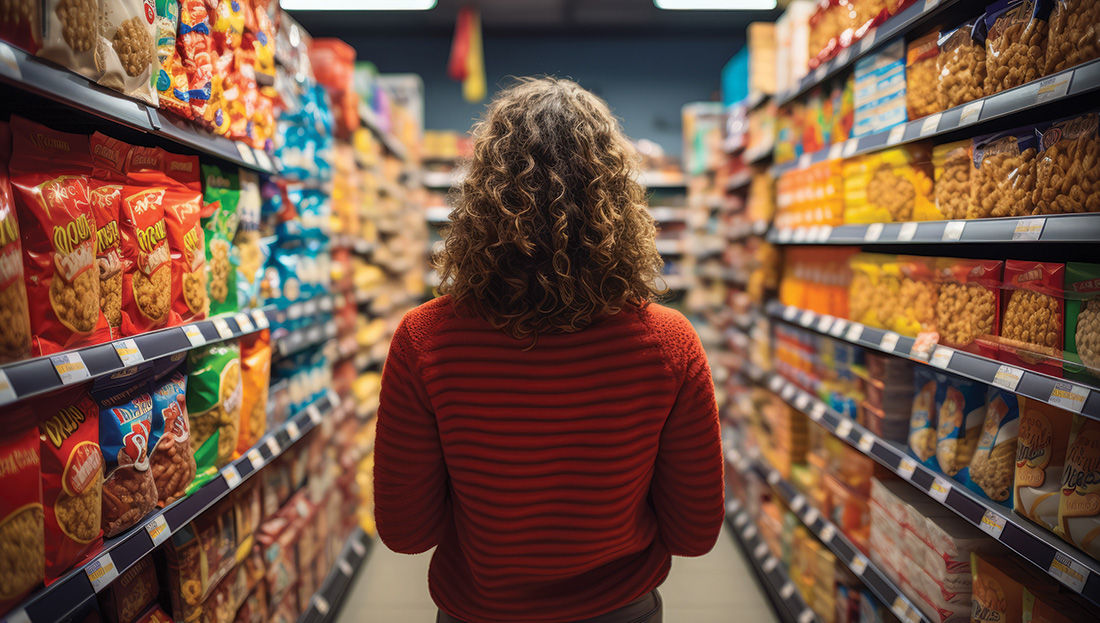
Are Ultra-processed Foods as Addictive as Drugs?

In recent years, the way we think about food and addiction has been evolving. While most people don’t typically consider a love for certain snacks to be an addiction, a growing body of research is suggesting otherwise. In fact, researchers like Dr. Ashley Gearhardt, a professor of psychology at the University of Michigan who specializes in issues related to addictive eating behaviors, and her colleagues argue that some foods, specifically ultra-processed foods high in carbohydrates and fats, might have the same addictive qualities as drugs or alcohol.
This may sound surprising, but the idea is based on solid scientific research. Although food addiction is not formally recognized as a diagnosis in medical manuals like the American Psychiatric Association’s Diagnostic and Statistical Manual of Mental Disorders, or DSM-5, it has gained significant attention in the past two decades. Researchers have developed a tool called the Yale Food Addiction Scale (YFAS), which measures food addiction by assessing the same criteria used for substance use disorders. The YFAS has been translated into multiple languages and is used worldwide.
A recent analysis of hundreds of studies from around the world found that about 14% of adults and 12% of children exhibit signs of food addiction, as measured by the YFAS. Surprisingly, these numbers are similar to the prevalence of addiction to substances like alcohol and tobacco. In certain populations, such as people who have obesity or binge eating disorder, the prevalence of food addiction can be even higher, reaching more than 50%.
The study, which included researchers from the United States, Brazil and Spain, was published in a special edition of the British Medical Journal called “Food for Thought 2023: The Science and Politics of Nutrition.”
Why Some Foods Are More Addictive Than Others
What makes some foods potentially addictive? It turns out that foods high in both refined carbohydrates and added fats, such as sweets and salty snacks, are the top culprits. These foods trigger brain responses that are much like those seen with addictive substances like nicotine and alcohol, leading experts to label them as potential addictive substances.
Of course, not all foods are addictive, nor are all processed foods equally addictive. Ultra-processed foods (UPFs), which are highly processed foods containing both refined carbohydrates and added fats, seem to be the most addictive. They are also linked to negative health outcomes, such as obesity and related conditions.
“Most foods that we think of as natural, or minimally processed, provide energy in the form of carbohydrate or fat—but not both,” explains Dr. Alexandra DiFeliceantonio, assistant professor at the Fralin Biomedical Researcher Institute and a coauthor of the study.
While people can give up smoking, drinking or gambling, they can’t stop eating. The challenge and the open and controversial question, explains Dr. DiFeliceantonio, is defining which foods have the most potential for addiction and why.
For example, consider an apple, a piece of salmon and a chocolate bar. The apple has a carbohydrate-to-fat ratio of roughly 1-to-0 and the salmon has a ratio of 0-to-1. The chocolate bar, however, has a carbohydrate-to-fat ratio of 1-to-1, which researchers believe increases a food’s addictive potential.
“Many ultra-processed foods have higher levels of both,” says Dr. DiFeliceantonio. “That combination has a different effect on the brain.”
The speed at which these foods are digested also plays a role. UPFs are designed to be consumed quickly, providing a rapid reward to the brain. This fast delivery makes them more appealing and possibly more addictive than less-processed foods, which take longer to eat and digest.
Additives in UPFs, such as flavor enhancers, can also make them more addictive. These additives are designed to make the food taste better and feel more satisfying, much like the role of additives in cigarettes. While these substances may not be addictive on their own, they can make the overall food experience more rewarding.
The Widespread Impact of Ultra-processed Foods
“There is converging and consistent support for the validity and clinical relevance of food addiction,” argues Dr. Gearhardt. “By acknowledging that certain types of processed foods have the properties of addictive substances, we may be able to help improve global health.”
The study’s researchers have also called for more study into the role of food additives used in industrial processing. Here are some key takeaways from their analysis:
Behaviors around ultra-processed food may meet the criteria for diagnosis of substance use disorder in some people. Those behaviors include less control over intake, intense cravings, symptoms of withdrawal and continued use despite such consequences as obesity, binge eating disorder, poorer physical and mental health, and lower quality of life.
This global health challenge needs to consider geographic differences. In some countries, ultra-processed foods are a needed source of calories. Even within high-income countries, food deserts and other factors could limit access to minimally processed foods. People facing food insecurity are more reliant on ultra-processed foods, and therefore more likely to demonstrate food addiction, researchers noted.
Viewing some foods as addictive could lead to novel approaches in the realm of social justice, clinical care and public policy. For example, policies implemented in Chile and Mexico that focused on taxes, labeling and marketing have been associated with reductions in caloric intake and purchases of foods high in sugar, saturated fat and salt. And in the United Kingdom, a salt-reduction program was associated with a decline in deaths from stroke and coronary artery disease.
The idea of UPF addiction has significant implications for public health, social justice, clinical care and policy. While it’s not an officially recognized diagnosis yet, understanding UPF addiction could lead to better support and treatment for those affected. For instance, it could lead to the development of clinical guidelines for treatment and management.
From a policy perspective, reclassifying UPFs as potentially addictive substances could lead to the implementation of measures similar to those used to address tobacco addiction, such as taxes on these foods and clearer labeling. Multipronged efforts may be needed to tackle the various factors that contribute to the addictive nature of UPFs.
What the Research Means to Health and Exercise Professionals
As a health and exercise professional, particularly if you work with underserved populations, it is essential that you approach this topic with sensitivity. Many people rely on UPFs for their daily meals, and those facing food insecurity are more likely to be affected by UPF addiction. Changes in accessibility, affordability and marketing of healthier food options, along with public health campaigns, can help reduce UPF addiction in these communities.
While the idea of UPF addiction may seem surprising, it’s supported by research and has significant implications for our understanding of food and addiction. As more research unfolds, we may see changes in how we perceive and address this issue in our daily lives and in the wider context of public health and policy. In the meantime, help your clients understand how food choices impact not only their weight or overall health, but also their ability to stick with their goals due to the addictive nature of UPFs.
In the U.S., an estimated 58% of the calories consumed come from ultra-processed foods. Of course, telling your clients to simply eat whole or unprocessed foods isn’t exactly helpful advice. Most people want clearer guidance that they can put into practice, whether it’s about physical activity or diet (or just about anything else in life, for that matter). To that end, check out this CERTIFIED article, How to Unprocess Your Diet, which presents six practical tips you can pass along to your clients to help them reduce the amount of processed foods they consume and, in turn, improve their energy, health and fitness.

More Articles
- Certified™: December 2023
Can You Coach Your Clients to Greater Happiness?
Contributor
- Certified™: December 2023
The Far-reaching Impact of Community Volunteering
Contributor




 by
by 

